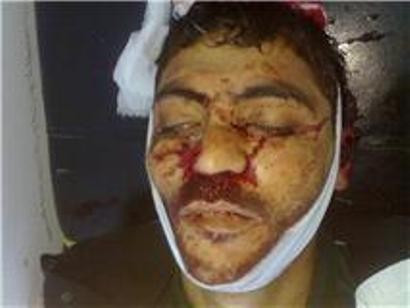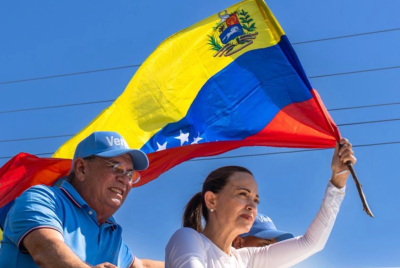Syria: Nobody is Safe From Torture, Not Even Children

Despite signing an agreement earlier this week to allow Arab observers into the country, the death toll in Syria has continued to rise, with fresh attacks on villages and protesters resulting in 100 deaths on Tuesday.
Since the state-led crackdown on protesters began in March, footage has been uploaded onto YouTube, Facebook and Twitter showing the brutality of the regime, with graphic evidence of soldiers torturing civilians and detainees.
Hivin Kako, spokeswoman for the British-based Syrian Observatory for Human Rights (SOHR), said that despite the Assad regime denying accusations of torture and other human rights abuses, it is clear that its campaign to intimidate the Syrian people is still ongoing.
"Nobody is safe in Syria", she stated at the beginning of the interview.
Under Bashar's father, the late Hafez al Assad, the regime had similarly been accused of repressing its own people, but the torture of children is one of the new strategies now being employed by the security forces.
The protests against the government have continued since March, when over a dozen youths from the same family were caught writing graffiti against the regime. Members of the group, who ranged in age from nine to 15, were tortured following their arrests and then sent back to their family with their bodies covered in marks.
"SOHR has traced the deaths of at least 280 under 18-years-old," Ms Kako said, adding that people associated with the organisation have also been targeted by the regime.
"Soon after the name of SOHR director's was first announced on Syrian TV, his wife's nephews, aged 14 and 15, were arrested. Although they did not take part in protests, they were beaten up and spat at during their detention. The security forces even brought in other kids, who joined in the humiliation," she explained.
Humiliating civilians and instilling fear in the population by acting with all impunity seems to have become one of the hallmarks of the regime
"Raids target activists and protesters," she said. "They also happen randomly and anyone can be arrested.
"In April, at the beginning of the revolution, the regime arrested 5,000 people from Al Bayda in Baniyas city, where protests against the regime had taken place. They were all Sunnis. The forces took them to a football stadium, where they were publicly and openly tortured. They were not only beaten up and pushed to the ground. The soldiers also repeatedly stamped on them. Before they were taken to the stadium, the security forces toured Allawite villages, asking people to come with them to participate in the humiliation," Ms Kako added.
"When footage of the incident appeared, the regime denied all responsibility for it, claiming that the images were from Iraq, even though the accents in the footage were clearly Syrians. The villagers that were arrested also recorded footage of the marks left on their bodies by the torture they had undergone and stated that they had been brutalised by the regime's forces." [See the video below]
Sectarian violence and the Sunni/Allawite divide has been greatly encouraged by the regime. "They dump dead bodies near Allawite areas to intensify the hatred," she said.
Mass arrests, abductions and executions are recurrent. Ms Kako said: "On 5December, 34 bodies of people who had been abducted by the Shahiba [militia] were discovered in the al Zahra neighbourhood of Homs."
Among recent incidents, she said that a week ago Syrian troops stopped a bus from Homs while it was en route to Saudi Arabia. "The passengers were asked to step off the bus and remove their clothes. They were then beaten up by the security forces, who took pictures of them before they were released."
Just this week, a group of more than 60 soldiers who had planned to defected were gunned down by the army on Monday in Zawyia Mountain in Idlib province, SOHR reported.
Intimidation and provocation go hand in hand. Tortured bodies are simply sent back to families without any further explanation. "In some cases, bodies are just dropped off near their relatives' houses or simply dumped at local hospitals," Ms Kako said.
"I spoke to some families, who told me that when they went to the [security] forces to declare their children missing, they were told that if they brought their wives with them, the army would 'help them' get new children in replacement for those they had lost.
"There were cases of women being raped by the regime's troops being reported at the beginning of the revolution," she said. "Some of them ended up pregnant. It remains taboo for people to talk openly about sexual abuse in Syria. Many are too ashamed and scared of being stigmatised to speak about it."
While the torture usually takes place behind closed doors, the brutality of the regime affects everyone. "They also cut the power, leaving people without electricity, water or heating, sometimes for weeks. Internet access is closely monitored and activists' family members are also targeted." Ms Kako said.
Although Syria agreed to let foreign observers, the death toll has risen on a daily basis since then.
The level of violence, distrust and enmity between the regime and protesters is now so ingrained that a regime change is the only option for the thousands of Syrians who continue to risk their lives in the struggle.
"The regime is pushing for the protesters to take up arms and for the violence to become increasingly sectarian. Something needs to be done before the country really slides into civil war" Ms Kako warned.
© Copyright IBTimes 2025. All rights reserved.




















